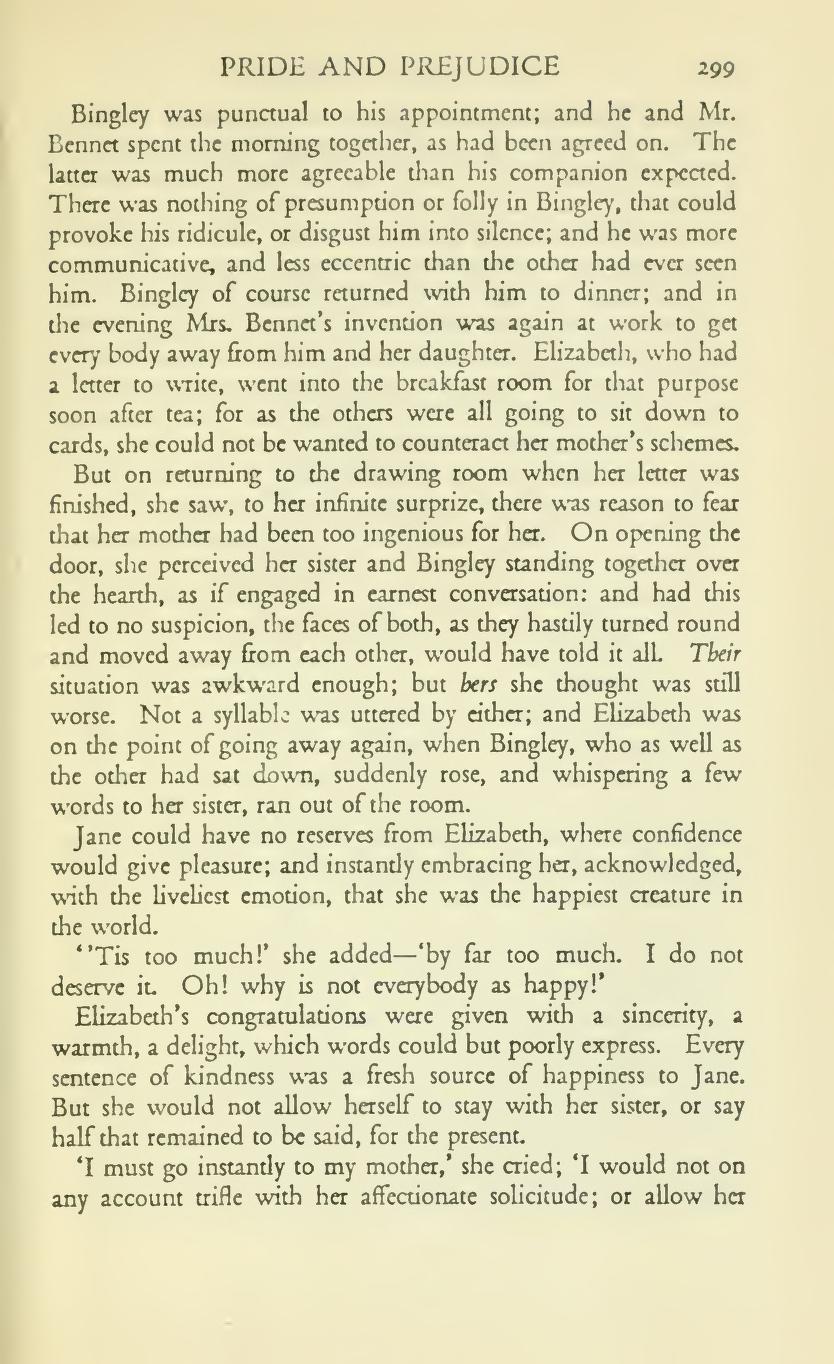 ............prev.....................next
............prev.....................next{{prxprp299.jpg}} || PRIDE AND PREJUDICE 299 ||
Bingley was punctual to his appointment; and he and Mr.
Bennet spent the morning together, as had been agreed on. The
latter was much more agreeable dian his companion expected.
There was nothing of presumption or folly in Bingley, that could
provoke his ridicule, or disgust him into silence; and he was more
communicative, and less eccentric than the other had ever seen
him. Bingley of course returned with him to dinner; and in
die evening Mrs. Bcnnet's invention was again at work to get
every body away from him and her daughter. Elizabeth, who had
a letter to write, went into the breakfast room for that purpose
soon after tea; for as the others were all going to sit down to
cards, she could not be wanted to counteract her mother's schemes.
But on returning to the drawing room when her letter was
finished, she saw, to her infinite surprize, there was reason to fear
that her mother had been too ingenious for her. On opening the
door, she perceived her sister and Bingley standing together over
the hearth, as if engaged in earnest conversation: and had this
led to no suspicion, the faces of both, as they hastily turned round
and moved away from each other, would have told it alL Their
situation was awkward enough; but hers she thought was still
worse. Not a syllabic was uttered by either; and Elizabeth was
on the point of going away again, when Bingley, who as well as
the other had sat down, suddenly rose, and whispering a few
words to her sister, ran out of the room.
Jane could have no reserves from Elizabeth, wheie confidence
would give pleasure; and instandy embracing her, acknowledged,
with the liveliest emotion, that she was the happiest creature in
the world.
"Tis too much!' she added -- 'by far too much. I do not
deserve it. Oh! why is not everybody as happy!'
Elizabeth's congratulations were given with a sincerity, a
warmth, a delight, which words could but poorly express. Every
sentence of kindness was a fresh source of happiness to Jane.
But she would not allow herself to stay with her sister, or say
half that remained to be said, for the present.
'I must go instandy to my mother,' she cried; 'I would not on
any account trifle with her affectionate solicitude; or allow her
[[299]]